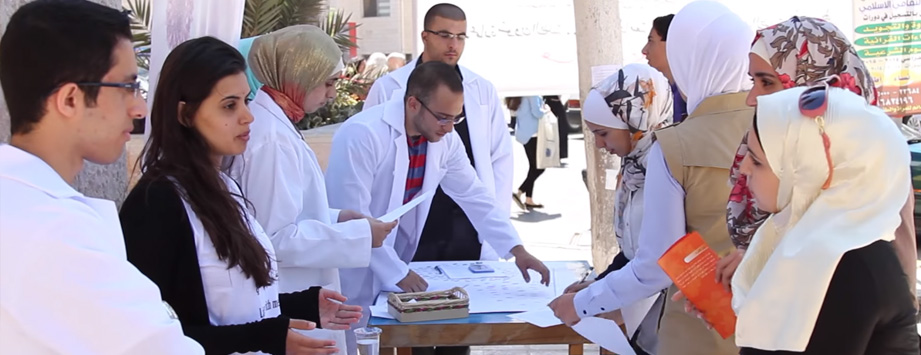Who we are
What we do
Support effective implementation of programmes and service delivery
WHO provides support in identifying gaps in reproductive, maternal, newborn, child and adolescents health laws, regulations and challenging policies through different activities.
Support partners to improve the lives of older people, their families, and communities as part of the UN Healthy Ageing Decade
WCO has been supporting national efforts as part of Jordan‘s commitment to ensure healthy ageing including declaring Amman as Elderly Friendly City
Coordinating multisectoral approach to forward the nutrition agenda
WHO Jordan has been supporting MoH and other stakeholders in developing the National Nutrition Strategy and its implementation framework 2023-2030. In addition, WCO has been coordinating national multisectoral effort to combat obesity, cardiovascular diseases, and diabetes.
Support the agenda of road Safety in Jordan
WCO supported national authorities to contribute in the 5th Global Status Report on Road Safety where data was collected from concerned stakeholders.
Support the agenda of Healthy Lifestyle
WCO is working with different stakeholders on promoting healthy lifestyles across life course including collaborating with Greater Amman Municipality on the Healthy City Initiative in Amman with emphasis on delivering a high-impact policy or programmatic intervention to reduce NCDs and injuries, enforce the ban on indoor smoking in public places and promote physical activity among other initiatives.
Promoting enabling environment to implement tobacco control measures
WCO works with the WHO FCTC Secretariat and the Jordanian Government to implement the tobacco control interventions in the WHO Framework Convention on Tobacco Control (WHO FCTC) to reduce the prevalence of tobacco use and exposure to tobacco smoke with the focus on the impact on children










